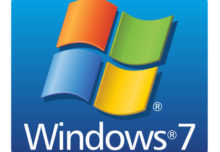
Technology is everywhere – it’s entwined with practically every part of our culture. It affects how we live, work, play, and most importantly how we learn. With computers and other wireless devices becoming an increasing requirement across every industry sector today, it only makes sense that schools, colleges, polytechnics and universities use technology in the classroom. To help your school confidently make the decision to embrace computers in the classroom, we’ve put together a list of the main benefits of using computers in schools.
1. Technology caters to different learner types
Technology enables learners of all learning styles to adapt easier than traditional school methods. Integrating technology into the classroom is an effective way to connect with all learner types, whether the students are visual, aural, verbal or physical learners. Furthermore, modern day students have become less engaged with learning and more engaged with technology. Combining the two in an interesting and thought-provoking manner can lead to improved participation and higher concentration levels in class.
2. Access to relevant and up-to-date information
Using technology is the simplest way to get the most up-to-date and relevant information. Technology allows students to learn new things, for example, learning to code websites or image editing is only possible when students have computers in the classroom. The world is constantly changing and keeping up to date on the newest information is only a click away when students have access to computers. The number of books or CDs needed to keep up with current events would be an astronomical number, in price and quantity.
3. Technology encourages Active Learning
Active Learning is a process that has student learning at its centre. Active learning focuses on how students learn, not just on what they learn. New technologies create new learning experiences, for example, virtual reality (VR) can be used as a learning tool. Learning is not just a case of listening, repeating, or remaining passive. With the addition of technology in classrooms, the role the teacher in the classroom can take on a new and dynamic light. Traditional passive learning is in the past, teachers now need to be coaches, encouragers and advisers to have the biggest impact on students.
4. Computers encourage collaboration
Collaboration is, without a doubt, key to unlocking great work. Technology enhances the need of a community and collaboration. Learning and working through problems in a group setting is a great way of teaching students how to work collaboratively. Computers gives students the opportunity to interact with their classmates and instructors by encouraging collaboration, ultimately students can achieve more. In the words of Mother Teresa “I can do things you cannot, you can do things I cannot; together we can do great things.”
5. Technology prepares students for future
It’s unlikely that the students of today will enter the working world without needing to use computer devices of some variety. Whilst it won’t be expected that they can pick up and use all devices to their full functionality, it would be extremely beneficial if they were well equipped to use a range of devices. Not only do students benefit, technology allows teachers and students alike to develop their technology skills becoming more efficient and savvier in teaching and everyday life.
The bottom line
You don’t always need the latest and greatest kit, but technology needs to work for your school and your students for them to make the most out of their education. Choosing the correct computer is critical to the success of your institution and students. Research is great, but a trained professional to guide your decision making is better. If your school is still debating how technology can benefit your students, teachers and administrators, get in touch with us now. Trust Recompute to help you with refurbished computers for your institution, budget and technical requirements.




